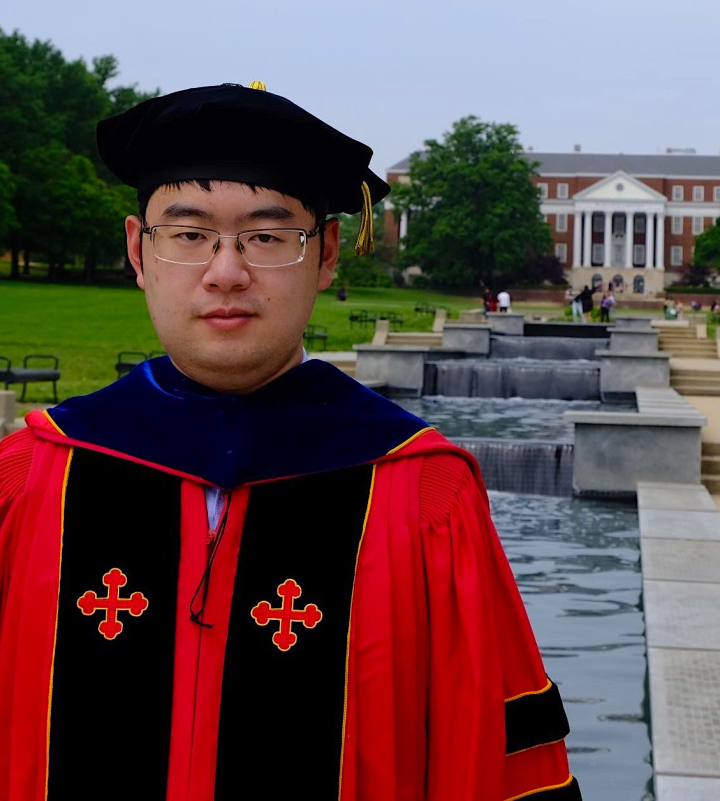Former QuICS Graduate Student Wins Alexander Prize for Dissertation on Quantum Algorithms
A former graduate student in the Joint Center for Quantum Information and Computer Science (QuICS) has been recognized by the Department of Mathematics for his impressive contributions to the development of quantum algorithms.
Jin-Peng Liu, who graduated last year with a Ph.D. from the Applied Mathematics & Statistics, and Scientific Computation Program, is the latest recipient of the James C. Alexander Prize for Graduate Research in Mathematics.
The prize was established by UMD alumni Lawrence J. Baker and Dorothy Z. Baker in 2014 to support recent or graduating Ph.D. students in mathematics.
Professor of the University of Maryland's Department of Computer Science and QuICS Co-Director Andrew Childs served as Liu’s academic adviser and nominated him for the award. Childs emphasized that the research Liu conducted at UMD on quantum algorithms for nonlinear differential equations exponentially improves over the previous best quantum algorithm in 15 years. Nonlinear differential equations appear in many domains and model diverse phenomena, but are notoriously difficult to solve.
“This result gives the first concrete evidence that quantum computers might provide an advantage for solving certain kinds of nonlinear dynamical problems, which arise in applications such as fluid flow and plasma dynamics,” says Childs, who also has an appointment in the University of Maryland Institute for Advanced Computer Studies.
Liu’s research at UMD focused mainly on the design and analysis of quantum algorithms for scientific computational problems, including topics such as linear and nonlinear differential equations, quantum dynamics, and stochastic processes. His work is applicable to fluid dynamics, biology, quantum chemistry, economics and finance.
In his dissertation, “Quantum Algorithms for Linear and Nonlinear Differential Equations,” Liu attempts to build a bridge between classical and quantum mechanics, understand and optimize the power of quantum computation, and discover new quantum speedups over classical algorithms with provable guarantees. He accomplishes this by utilizing advanced linear algebra techniques and nonlinear analysis.
While at UMD, Liu received the Graduate School’s Outstanding Research Assistant Award and the National Science Foundation Quantum Information Science and Engineering Network Triplet Award.
Liu is currently a Simons Quantum Postdoctoral Fellow at the Simons Institute for the Theory of Computing at UC Berkeley. This fall, he will join the Massachusetts Institute of Technology’s Center for Theoretical Physics as a postdoctoral associate. After that, he plans to start a faculty position at Tsinghua University in Beijing.
—Story by Melissa Brachfeld, UMIACS communications group
The Department welcomes comments, suggestions and corrections. Send email to editor [-at-] cs [dot] umd [dot] edu.
